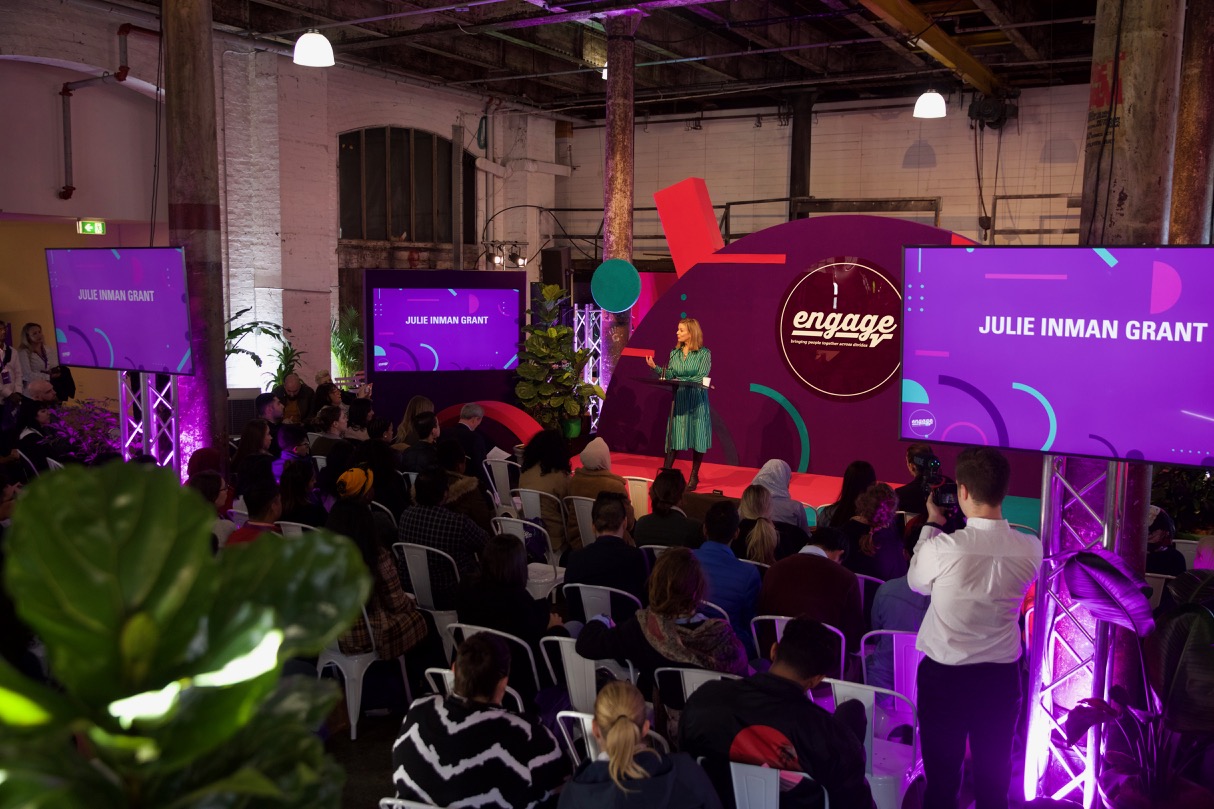
It was a real privilege to be given the opportunity to say a few words to a room full of impressive young changemakers at the DIGI Engage 2019 event which recently took place in Sydney.
DIGI Engage brought together a diverse bunch of passionate young people from across Australia who are dedicated to countering hate speech and extremism, creating a world where respectful dialogue can bring people together.
The event would see these young people inspired by a range of local and international speakers and get upskilled to effectively and positively influence others, both online and offline.
Indeed, as internet connectivity has become ubiquitous for many of us, there is increasingly less distinction between the ‘online’ and ‘offline’ worlds, as what happens online can impact what is happening in the physical world—and vice versa.
Digital platforms and social media can be a powerful tool for people from all walks of life to connect, engage, learn and grow—and to raise awareness about important social issues.
Unfortunately, these same spaces can also present risks and harms, including forms of online abuse that target vulnerable individuals and communities, breeding exclusion and silencing voices that should be promoted and protected.
I think it’s important to recognise that online abuse and hate speech is a 21st century manifestation of age-old human behaviours, with the additional insidious attributes of anonymity and pervasiveness that technology enables.
There is a strong nexus between the inequality, discrimination and disrespect underpinning abuse online and offline. In other words, the internet and social media can sometimes serve to reflect the dark side of the human condition, including sexism, racism and homophobia.
When it comes to addressing the insidious issue of hate speech and the perpetuation of violent, divisive messaging online, we all have a role to play—government, industry, and the broader community.
eSafety—and the Australian government more broadly—is committed to inclusion and diversity, both online and offline, and we are working to ensure that all Australians, irrespective of their ethnicity, faith, age, sexual orientation or gender, have positive, safer and more empowering experiences online.
Government and industry can work together to ensure there are preventative measures in place to help reduce all forms of online hate in the first instance, and to help empower people—especially young people—with the tools and support they need to be a force of positive influence. We also need to ensure there are support and reporting mechanisms for those who need them, such as those provided by eSafety.
The digital platforms and social media that have become woven into our lives have the power to help unite communities, amplify voices and promote and spread positive and progressive causes.
I saw this firsthand whilst working at Twitter. In late 2014, in response to the Lindt café siege in Sydney, social media became a means to follow news and commentary on events as they unfolded, and a place for people to express their shock and sadness at what was taking place.
Unfortunately, social media also became a means for people to spread xenophobic and anti-Muslim rhetoric, going so far as to suggest violent reprisal against a whole community for the actions of one radicalised individual.
And then, a young Sydney commuter tweeted a simple offer to anyone catching the same bus as her who might be afraid to travel alone wearing religious attire. She used the hashtag #IllRideWithYou, and an inspiring message of tolerance and solidarity went viral.
Positive movements like #IllRideWithYou are not the product of digital platforms, nor is their success autonomous or guaranteed by the platforms. These movements are born in the minds of passionate, inspired individuals, driven and fuelled by the courage and desire to see change in their communities.
So, ultimately, I am a technology optimist. I believe that the benefits of the internet far outweigh the risks and challenges, especially if we can empower young people with the skills and strategies they need to minimise the negatives, maximise the positives, and thrive in the online world. Events like DIGI Engage are crucial to achieving this goal.
My hope is that the young people who attended DIGI Engage return to their respective homes across the country feeling empowered and emboldened to be leaders of positive influence in their local communities—and in their online communities.
I also hope the passion and commitment of such young changemakers can influence more of us—indeed, all of us—to step up and play our part in helping create a safer, more positive and respectful online environment.
This is an adapted version of a speech given by Julie Inman Grant at DIGI Engage 2019 on 27th June 2019.




